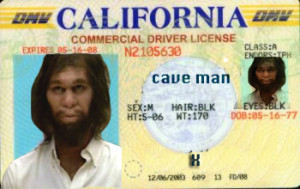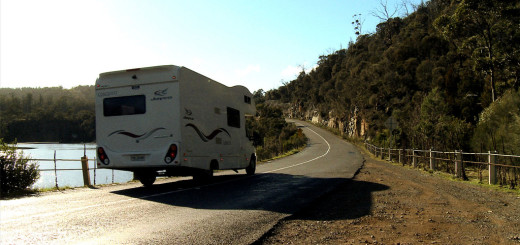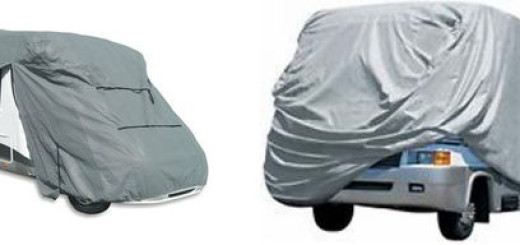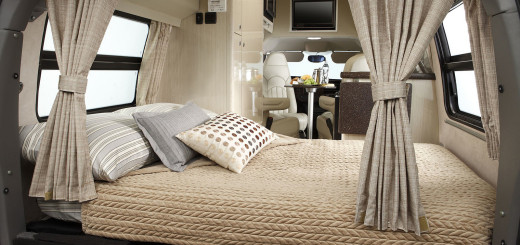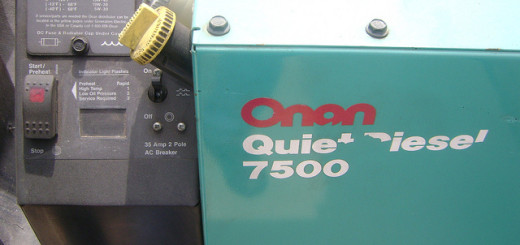Motorhome Drivers License: Who Needs One?
Question: Do I need a motorhome drivers license?
We’re looking to buy a motorhome at some point in the near future, so I’m starting to wonder about license requirements. I’d like to test drive a number of rigs before coming to a decision, but I don’t want to get to the lot and find out I don’t have the right qualifications since I just have a regular drivers license.
Is there some kind of motorhome drivers license that I need to get, or am I going to need a commercial drivers license? We’ve been specifically looking at class a motorhomes, so it would also be helpful to know if and are there any special class a license requirements that I need to keep in mind.
Answer:
You’ll have to check the local or state laws in your area to be sure, but in most cases you don’t need any sort of special motorhome drivers license–either to test drive or to hit the road after you buy. There are some exceptions, but they are very unlikely to come into play if you’re looking at anything that even remotely qualifies as a small motorhome. For example, the state of California places restrictions on driving “house cars” that are over 40 feet long. So if you live in California, and you want to drive a diesel pusher that’s longer than 40 feet, you’ll need a class B license. However, you still won’t need a commercial drivers license. In California, a noncommercial class B license will allow you to drive any rig that falls in the 40-45 foot range, and a noncommercial class A license will allow you to drive even the longest diesel pushers.
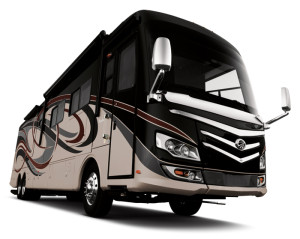
Some rigs, like the Monaco Diplomat, straddle the line between “small” motorhomes that don’t require a special license and the longer motorhomes that do.
Drivers License Classes
Due to the fact that drivers licenses are issued on a state level, there are some differences in drivers license class definitions and requirements from one state to another. However, the definitions of commercial drivers license (CDL) classes are defined at a federal level, and each state also recognizes the licenses of every other state. That means if you are licensed according to the laws in your state of residence, you are generally going to be okay to drive your motorhome to and through other states that have somewhat different laws and licensing requirements.
According to federal regulations, there are three commercial drivers license classes: A, B, and C. This may be somewhat confusing to new motorhome owners, since these CDL classes have absolutely nothing to do with the motorhome classes that use the same letter designations. Each of these CDL classes allows the licensed individual to drive a specific class of vehicles–for hire. If you aren’t driving commercially, then you are subject to your local regulations instead of the federal CDL regulations.
The three federally-regulated CDL classes are:
| Class | Authorized to Drive |
|---|---|
| A | Maximum combined vehicle weight (vehicle and trailer) of 26,000+ lbs. |
| B | Vehicles weighing up to 26,000 lbs. and combined (vehicle plus trailer) up to 26,000 lbs. |
| C | Vehicles that carry either more than 15 people or hazardous materials and weighing in at less than 25,999 lbs |
Noncommercial Drivers License Classes
If you aren’t planning on driving a motorhome commercially (i.e. getting paid to deliver rigs over the road), then you’re not subject to the federal regulations that govern commercial licenses. Instead, you have to look at your state laws. Each state has its own noncommercial drivers license classes and endorsements, and while there is no motorhome drivers license, you may need a special class of noncommercial drivers license or a specific endorsement on your existing license.
Motorhome Drivers License Requirements
Unlike commercial drivers licenses, which focus on weight, passenger capacity, and the presence of hazardous materials, most states that restrict the use of motorhomes (and other similar vehicles) do so based on length. In our original example, we cited the state of California, where they have a total of five noncommercial drivers license classes. Two of these classes apply to motorcycles, but the other three dictate the sort of cars and trucks you can drive non-commercially.
In California, the noncommercial drivers license classes that may apply to driving a motorhome are:
| Class | Authorized to Drive | Authorized to Tow |
|---|---|---|
| A | Motorhomes that are longer than 45 feet. | Travel trailers that weigh more than 10,000 lbs. and 5th wheel trailers that weigh more than 15,000 lbs. |
| B | Motorhomes that fall between 40 and 45 feet in length. | Up to 10,000 lbs. (with restrictions) |
| C | Motorhomes that are less than 40 feet long. | Same as class B. |
That means, if you live in California, you can drive virtually any small motorhome with your basic class C license and quite a few rigs that are decidedly less than small. In fact, your basic class C license would allow you to drive a diesel pusher like Tiffin’s Allegro Breeze or Thor’s Palazzo. If you’re looking at a class a gasser (let alone a class c or b rig), it’s very unlikely that you’ll run into motorhome drivers license issues.
Other states, like Maryland, issue noncommercial licenses based on the federal commercial license regulations. In that case, you’ll need a special license if your motorhome weighs in at more than 26,000 lbs. There are also special cases, Maryland included, where there effectively is a special motorhome drivers license. It isn’t actually called that, but it is possible to get a “restricted” class A or B license in Maryland that only allows you to drive motorhomes in those specific weight and towing classes. There are also states, like Wisconsin, where especially long motorhomes (45+ feet) actually require a CDL to operate.
In other states, there are fewer (or no) special noncommercial drivers license classes and endorsements, or such endorsements are primarily limited to motorcycle or mopeds. In that case, there may be no need to get a motorhome drivers license since they don’t actually exist. For example, in the state of Washington, there are no specific motorhome drivers license requirements, which means residents of that state can drive any RV without a special license or endorsement.
Of course, every state has its own regulations, and laws do change from time to time, so it’s still important to check the specific laws in your state before you hit the road.

